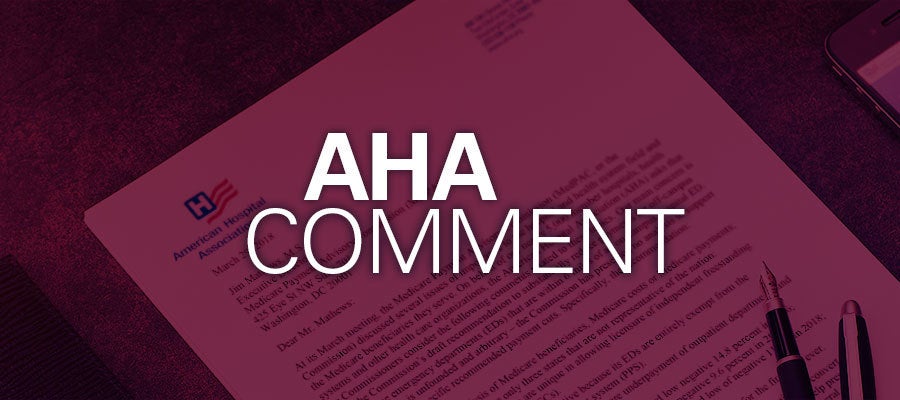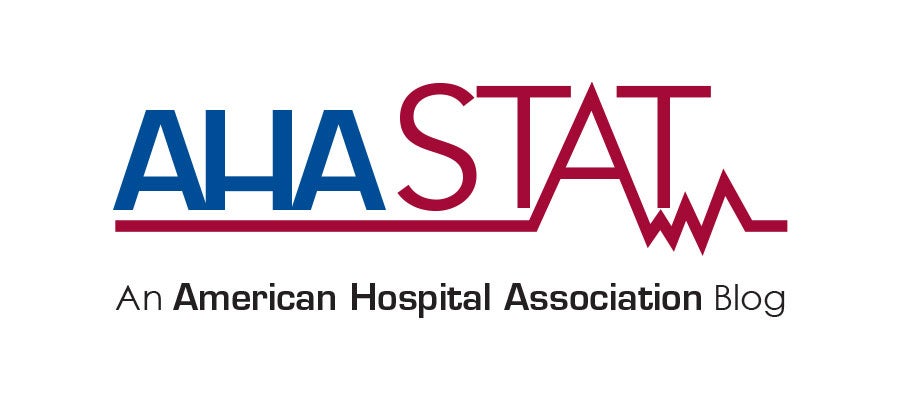
News






Latest
By understanding the attitudes and beliefs that drive patient behavior, health care organizations “can design messaging that promotes positive health outcomes, including messages deployed during a public health emergency,” writes Erin Fogarty, health education and marketing director for the Livingston County Health Department in Pontiac, Ill.
Rebecca Chickey, AHA’s senior director of behavioral health, talks with Dr. Arpan Waghray, CEO of Providence Well-Being Trust, and Elisa Arespacochaga, AHA’s vice president of clinical affairs and workforce, about strategies to support the mental well-being of health care workers.
The deadline is May 31 for acute care hospitals, physician group practices and Medicare accountable care organizations to apply to participate in the Centers for Medicare & Medicaid Services’ two-year Bundled Payments for Care Improvement Advanced Model that begins in January 2024.
The White House and Speaker McCarthy May 27 announced the Fiscal Responsibility Act of 2023 (H.R. 3746), a deal to suspend the debt limit for nearly two years and make other policy changes
by Erin Fogarty
By understanding the attitudes and beliefs that drive patient behavior, health care providers and administrators can better design messaging that promotes positive health outcomes, including messages deployed during a public health emergency.
The shortage of behavioral health care professionals is a serious public health issue, particularly in rural areas. In rural Iowa, some care providers have found successful new pathways to recruit, train and retain behavioral health specialists.
U.S. and international cybersecurity authorities released an advisory to help health care and other critical infrastructure organizations identify and protect their networks from a People’s Republic of China state-sponsored group known as Volt Typhoon that uses built-in network administration tools to avoid detection.
During a roundtable live-streamed this week from Dartmouth Hitchcock Medical Center, CEOs from Dartmouth Health, Maine Health and The University of Vermont Health Network discussed the crisis facing the nation’s rural hospitals and health systems, from workforce shortages to inflation and payer and regulatory concerns.
The AHA May 25 published a report on the 340B Drug Pricing Program, its history and value to hospitals and patients, and details on 340B contract pharmacy arrangements.
The Centers for Medicare & Medicaid Services this week proposed changes to the Medicaid Drug Rebate Program intended to improve manufacturer data integrity and help states verify drug prices.
by Rick Pollack, President and CEO, AHA
We at the American Hospital Association, all of our members, and the individuals working in hospitals and health systems across America, salute our fallen. We work in health care to help save lives, but we understand firsthand the toll of loss, especially the loss of young lives given in service.
Burnout is a condition “that affects the brain in very real, noticeable ways,” write AHA’s Elisa Arespacochaga and Michael R. Privitera, M.D., professor emeritus of psychiatry at the University of Rochester Medical Center.
In part 2 of a new AHA video moderated by Leon D. Caldwell, AHA senior director of health equity strategies, health equity leaders and community stakeholders in Minneapolis discuss how their organizations are collaborating to advance and sustain health equity following the murder of George Floyd on May 25, 2020.
Often the fear of saying “the wrong thing” prevents health care workers from reaching out to colleagues they’re worried about. In the latest episode of the Advancing Health podcast, Luci New, assistant professor of nurse anesthesia at Wake Forest School of Medicine, talks with AHA’s Jordan Steiger about the most important words a concerned colleague can say: “I care about you.”
An interagency task force chaired by the Cybersecurity and Infrastructure Security Agency and FBI yesterday released an updated guide offering best practices and a checklist to help critical infrastructure organizations such as hospitals and health systems prevent and respond to ransomware and data extortion attacks.
The House Energy and Commerce Committee today voted 49-0 to advance H.R. 3561, as amended, legislation that would impose billions of dollars a year in additional site-neutral payment reductions to services provided in off-campus hospital outpatient departments.
A new AHA report highlights key takeaways from nearly 350 health care professionals nationwide who participated in a series of AHA-hosted listening sessions on the state of infection prevention and control to identify challenges, share what’s working, improve outcomes and create better patient experiences.
AHA Executive Vice President Michelle Hood previews the AHA Leadership Summit, July 16-18 in Seattle, designed to help health care executives and trustees tackle critical health care issues.
Over 30 organizations, including the AHA, urged Congress to swiftly pass the Saving Access to Laboratory Services Act (S. 1000/H.R. 2377), bipartisan legislation that would update Medicare’s payment system for laboratory services to make it predictable and sustainable.
As the House Energy and Commerce Committee prepares to consider a legislative provision (H.R. 3561) that would reduce payments for drug administration services furnished in off-campus provider-based departments, the AHA and other national hospital groups reiterated to committee leaders their opposition to the proposal and to site-neutral policies in general, which fail to account for the fundamental differences between hospital outpatient departments (HOPDs) and other ambulatory care sites.

